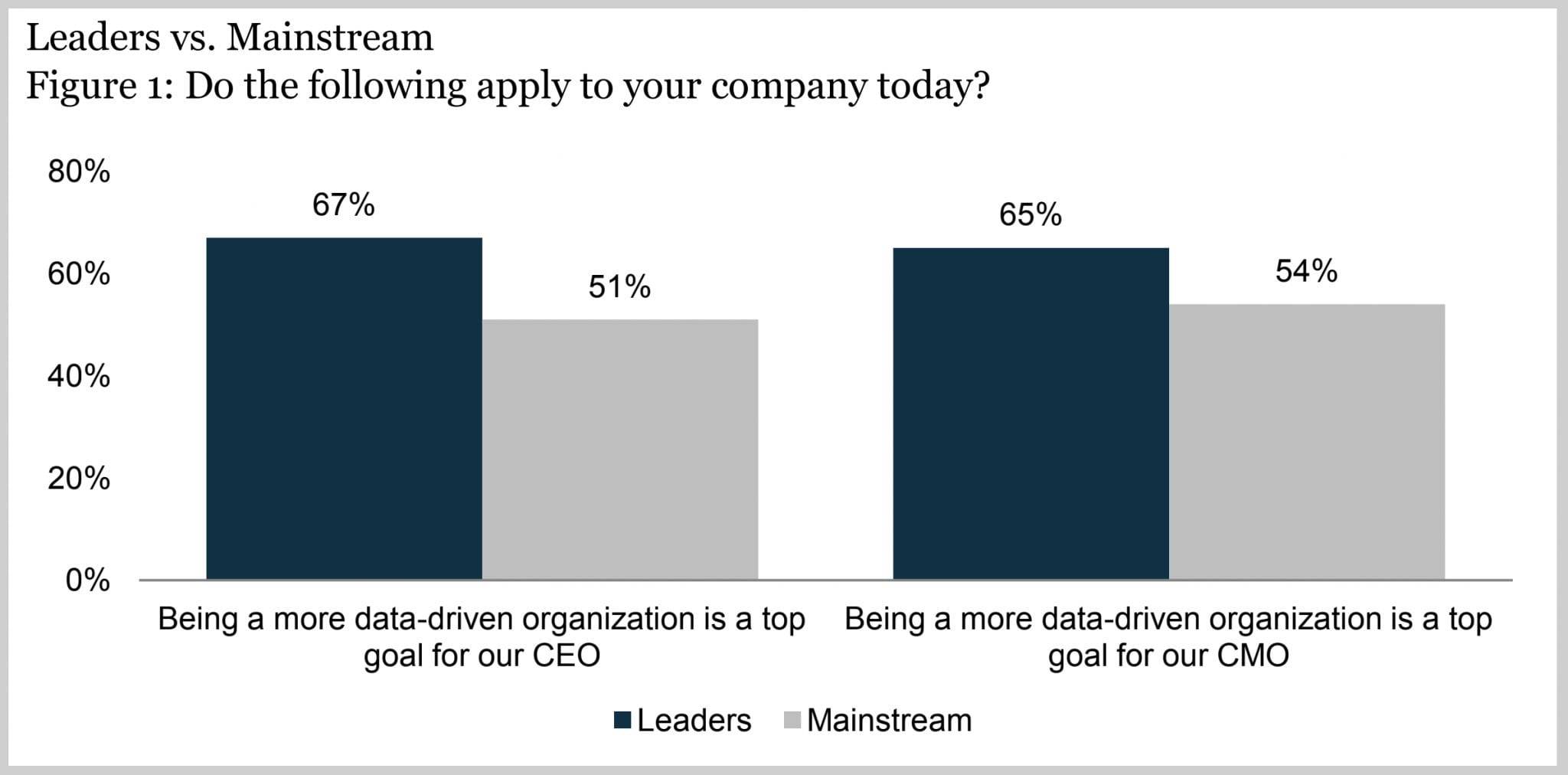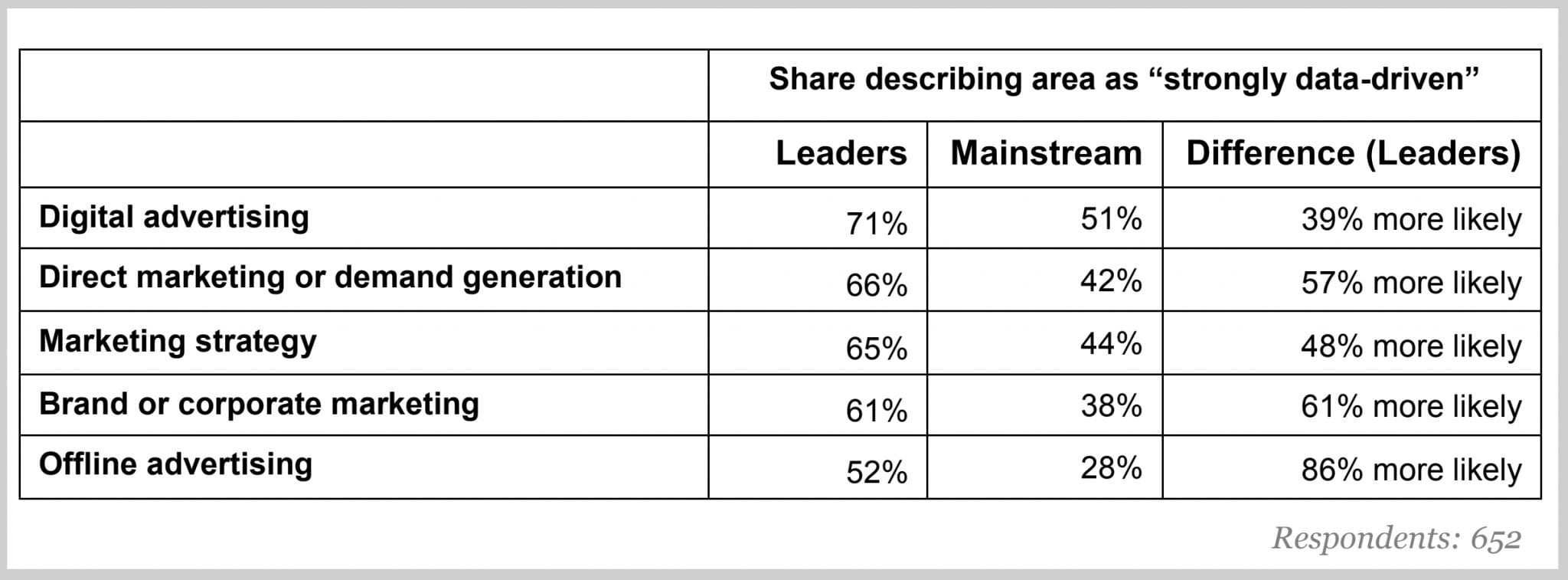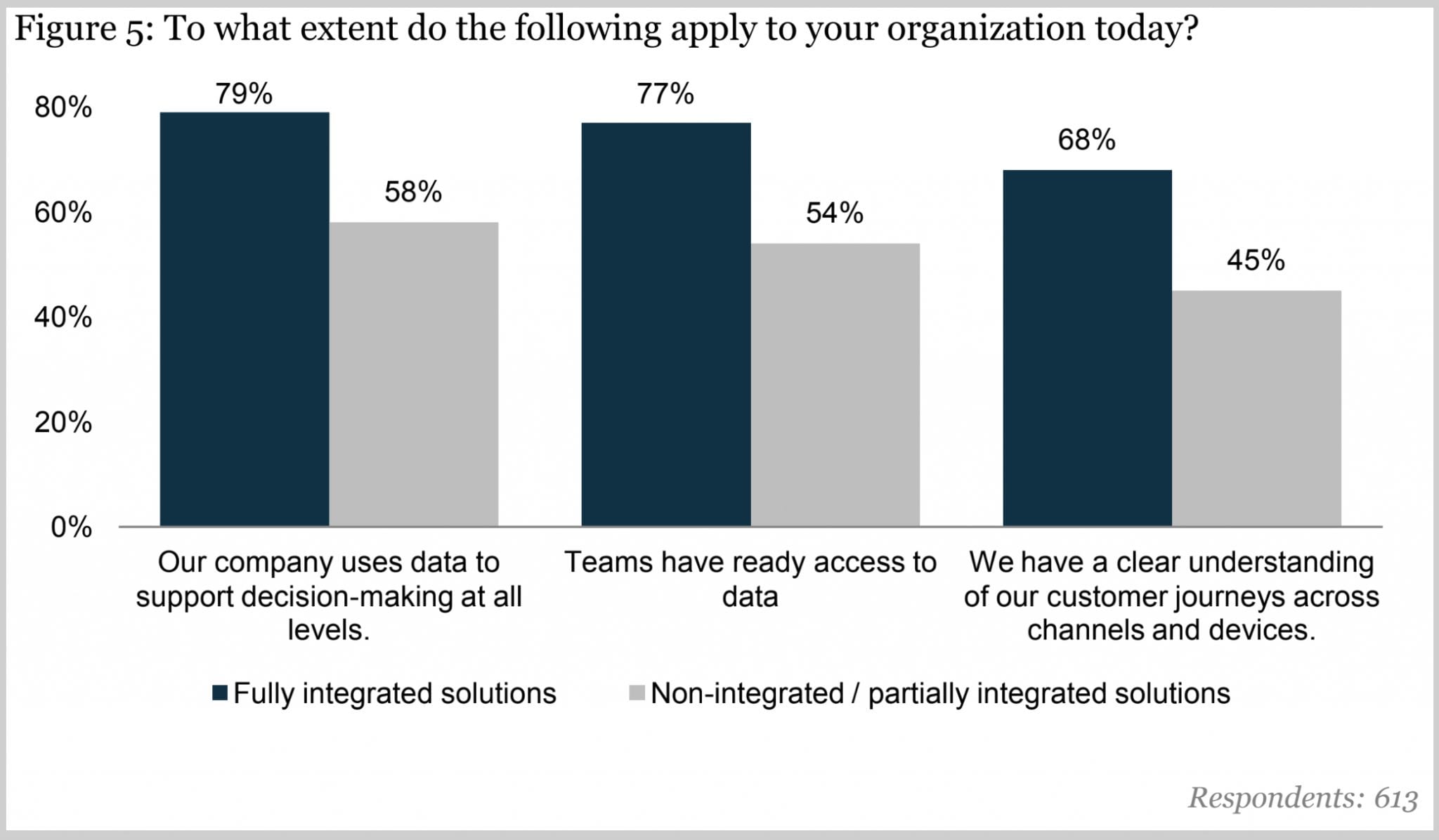“Marketers today should feel like kids in a candy shop.”
That has to be one of the sweetest opening lines to a white paper I’ve read. The author’s point: technology is making marketers more effective.
The paper at large is tasty too. The Customer Experience is Written in Data: Why and how the most successful brands are putting data at the center of marketing strategy, is a joint project by Econsultancy and Google.
I love the topic—data-driven marketing—and in this post I’m going to dig into the paper’s findings.
Here’s your TL;DR bullet: The most successful brands are aggressive in their approach to data. Data drives (1) better decisions (2) customer journey analysis, and (3) growth.
However the report’s not TL (too long) and you should read it. Or at the very least, you should read the summary I’m about to provide you. We’ll look at these questions and issues related to them:
- Who’s onboard the data train?
- Are you ready to make it work?
- Is a strategy in place?
- Have you got your stack together?
Leaders are data-driven.

The data in the research comes from 700 high-level marketing and analytics executives at consumer brands. The report consistently presents its findings by comparing how leading organizations compare with the mainstream. Leaders are defined by their success in meeting or exceeding their top 2016 goals. Roughly a quarter of the companies involved in the study qualified as leaders.
Unsurprisingly, leaders are significantly more committed to becoming data-driven marketers. They may not have mastered data-driven marketing on every front, but are consistently further along in using data in powerful and practical ways.
The top executives’ top goals.
Many companies that want to be data-driven are not. The reason? It’s not a top priority for the company brass.

The delta between leaders and the mainstream in this regard is not as drastic as you’ll see in other variables going forward.
Are we talking about digital advertising?
To a large degree we are. Check out these findings.
To what extent does your organization make decisions based on data or analytics in the following areas?

Digital advertising is the clear winner. Even the majority of the mainstream are onboard for basing advertising decisions on analytics.
If you’re looking for insights regarding where the leaders outpace the mainstream the obvious areas are offline advertising and corporate marketing.
Do data-based decisions matter?
Shockingly, the research claims:
- Just 36% of mainstreamers strongly agree that decisions made with data are superior to those based on gut instinct and experience.
- Only 53% of mainstreamers report their strategy is associated with specific business goals with the data practice.
- Half of all respondents say a lack of alignment in goals and objectives for data and analytics presents a negative impact on their organizations.
What can I say? Hop to it. Start making data-informed decisions or lose business to those who do.
Should you document a data and analytics strategy?

My question feels like a rhetorical one. As you know, what gets documented gets done.
The report claims:
- Leaders are 35% more likely to have a documented data and analytics strategy (66% vs. 49%).
- Leaders are 40% more likely to identify goals they are trying to achieve with data analytics.
- Leaders are 34% more likely to define and measure the touch points in the customer journey.
- 45% of all respondents say unclear definitions of KPIs present a significant or critical negative impact on their organizations.
On this point, the study concludes that defining KPIs is fundamental to marketing success. KPIs ensure internal discussions use the same data in the same ways, and provide the necessary frame of reference for working with technology vendors, agencies, measurement services and data providers.
Is your data integrated?
The most successful brands see data as the key to better decision-making, customer journey analysis and growth. As such, they invest in connecting disparate data sources.
In fact, leaders are 52% more likely than the mainstream to have integrated their marketing and advertising technology stack.
Brands that no longer have integration concerns are more likely to have a clear understanding of the customer journey than brands still wrestling with tying data sources together.

Decision-making is at the heart of a useful data and analytics practice. The best data-driven brands fully integrate marketing and advertising technologies and are 37% more likely to report that data is used to support decision-making at all levels.
- Companies with fully integrated solutions are 43% more likely to say they have the analyst resources needed accomplish their data-related goals.
- 70% of organizations with full-stack integration use marketing attribution to evaluate channel performance and review budget allocation, compared to only 45% of those with partial integration. This allows them more insights to create budgets.
Your action items.
Yes, some of these charts and findings may be a bit confusing. But here’s the net-net: Brands that forge a strategy for the advancement of analytics and build a data-driven culture achieve superior marketing results.
The study by Econsultancy and Google concludes with four recommendations:
- Invest in integration—Integration is an important and foundational step into the next stage of modern marketing.
- Ensure trust in data—Marketers at every level need to trust the data. If a trust problem exists. Your marketing staff must be trained to understand the processes that underlie data gathering and insights.
- Encourage access—Without the ability to get answers quickly, teams may turn away from data-driven decision making. Be sure marketers are well trained and have instant access to the information without the need to work with data analysts.
- Deploy strategies as a service—Data and analytics strategies should speed and support decision-making throughout the marketing organization. Leaders are 30% more likely than the mainstream to describe strategy principles as useful for decision-making.
While having a strategy is key to success, high-performing marketers also secure support from the C-suite and build a data-driven culture.
It’s time for a data gut check. You need to enable your team and partners to access data, uncover insights, and take action to move your business forward.